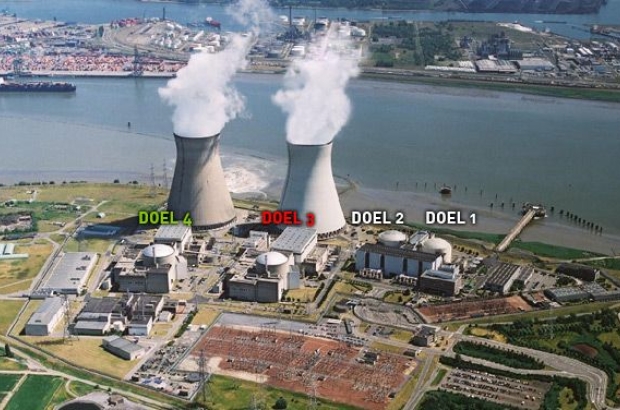- Daily & Weekly newsletters
- Buy & download The Bulletin
- Comment on our articles
Belgium reaches deal on extending nuclear power
Belgium will keep open two of its nuclear power stations until at least 2036, instead of closing them down as planned according to its nuclear phase-out law in 2025, federal energy minister Tinne Van der Straeten has announced.
The decision on extending the lifespan of Doel 4 and Tihange 3 – the newest of Belgium’s seven plants – followed extensive talks with Belgium’s electricity and natural gas utility Engie and a formal promise in January 2023 by prime minister Alexander De Croo to keep the plants running.
The reason for the decision is to ensure security of supply in the coming years. This proposal had already been approved in March 2022, shortly after the start of the Ukraine war. The war changed Belgium’s energy strategy, with the deal being made to help Belgium become less dependent on natural gas from abroad.
The government and Engie then negotiated the precise conditions for months, with a “non-binding letter of intent” about the life extension signed in July 2022 by the two parties.
Now a final agreement on all technical details, notably over the financing of the power plants and of the elimination of radioactive waste, has been reached.
A text of some 1,500 pages is now on the table, according to Van der Straeten’s cabinet. This includes a reported €15 billion commitment from Engie to deal with nuclear waste.
The minister is confident that the text, after approval by Belgium’s full government and Council of State, followed by further agreement by the Belgian parliament and the European Commission, “will get into parliament on time”, and be completed before the country’s June elections.
Van der Straeten said that the deal would not cost the taxpayer anything. She said the authorities have set a maximum price for it and that a decision had to be made on who would finance the nuclear waste disposal.
For Van der Straeten, simply allowing the two nuclear power stations to operate for 20 years longer instead of 10 would be “absurd” at the moment, as “you have to evaluate whether nuclear power plants meet the safety requirements every 10 years”. With elections due in a matter of months, she added: “Such a debate is for the next government.”
In January, Engie said that “both parties confirm their objective to restart Doel 4 and Tihange 3 nuclear units in November 2026.” De Croo added at the time that the cost of the future dismantling of the reactors would remain Engie’s responsibility.
Belgium’s six operating nuclear reactors generate about half the country’s electricity, according to World Nuclear Association data. One reactor, Doel 3, closed in September 2022 and the others were due to shut down in 2025.
Even after the extension of Doel 4 and Tihange 3 – which started operating in 1985 – Belgium will still need to fill a potential power generation gap in 2025 and 2026, according to a study from Belgium’s electricity transmission company Elia.

















